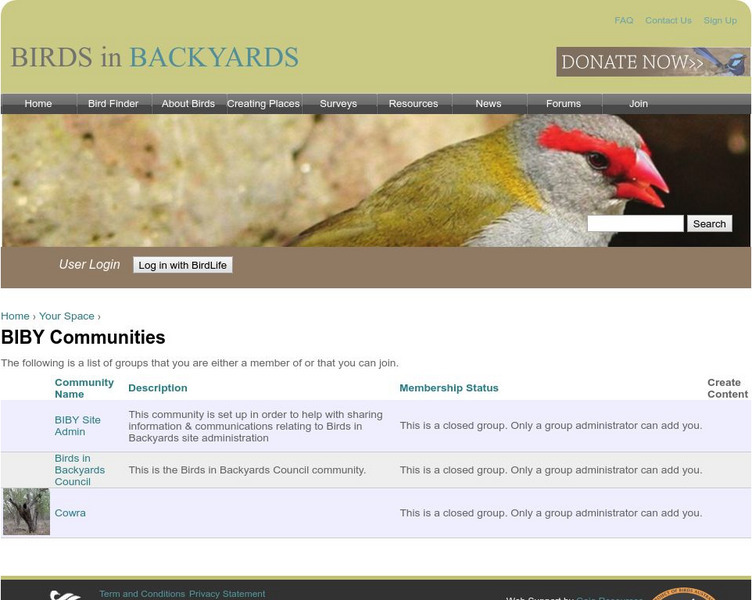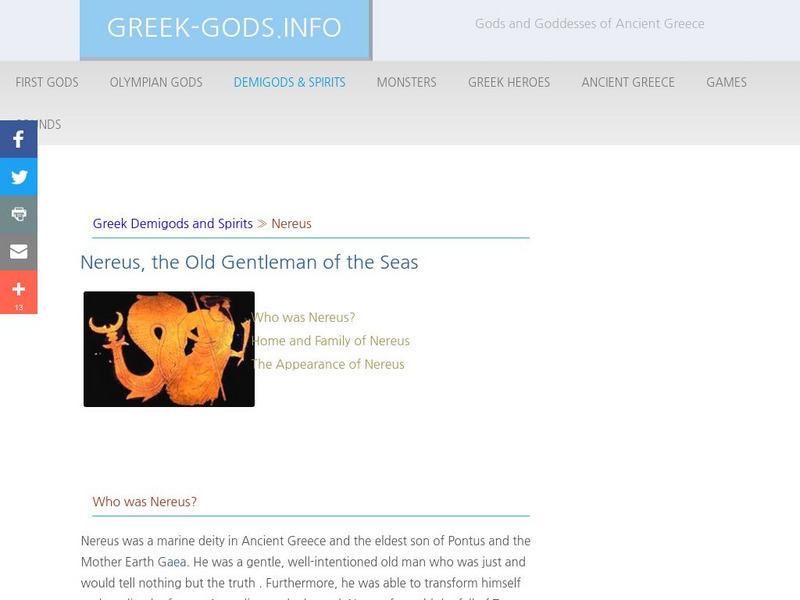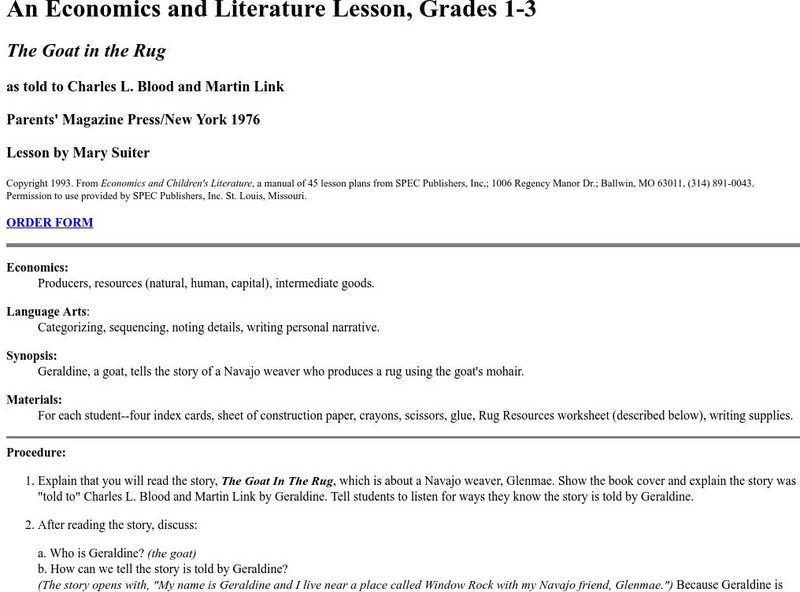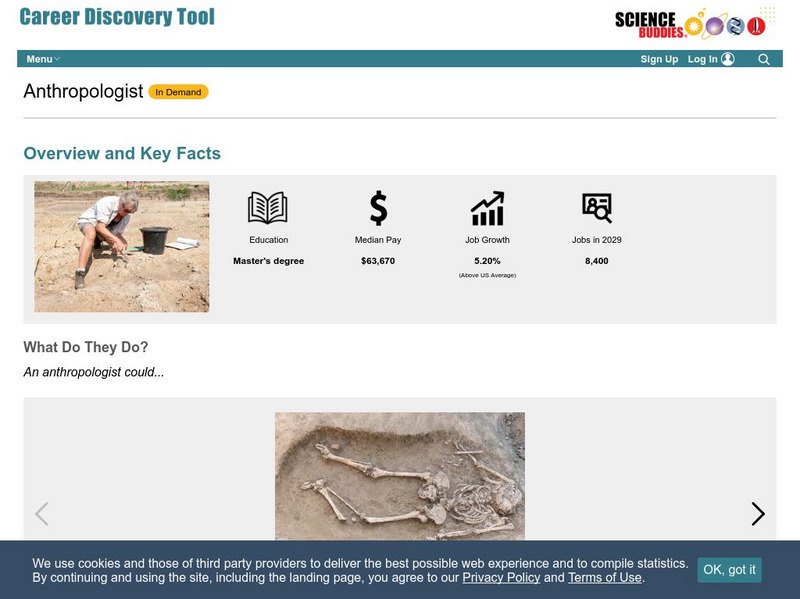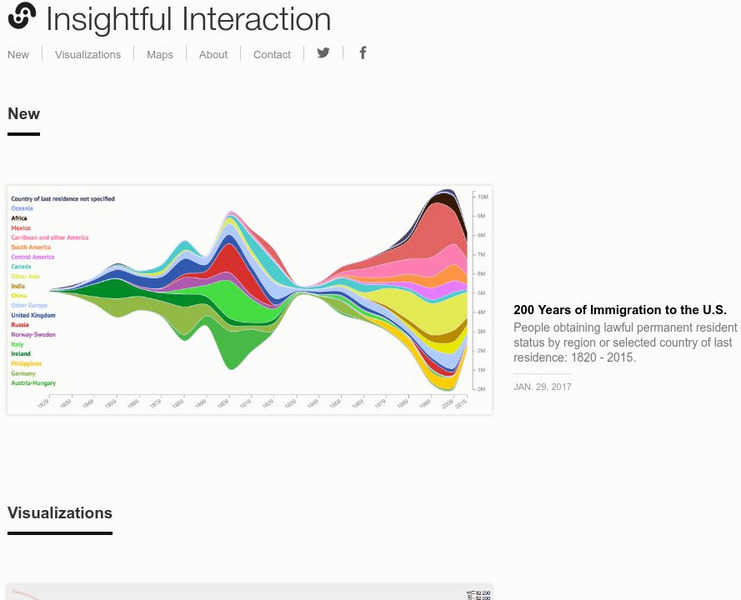Hi, what do you want to do?
Edutopia
Edutopia: Goods and Services [Pdf]
A unit that teaches the difference between goods and services, the difference between producers and consumers, the difference between human, natural, and capital resources, and the difference between bartering/trading and buying/selling....
Natural History Museum
Natural History Museum: Eukaryotes in Extreme Environments
Extremophiles thrive in the most extreme environments that are inhospitable for humans. This resource breaks down each type and provides a brief description. A good list of references is provided at the bottom of the page.
University of Florida
Florida Museum of Natural History: How to Avoid Shark Attacks
All you ever want to know to avoid being attacked by a shark. Full of lots of good safety tips and information.
Other
Birds in Backyards: Communities
This resource explains how your community can provide a good habitat for birds. Read and learn what type of habitat a bird likes and how even urban areas can be good places for birds.
Marxists Internet Archive
Marxists.org: "Existence and Being" by Martin Heidegger
One of Heidegger's works that is "easier" to read. Does require some background information, but a good way to introduce one's self to Heidegger and his peculiar writing style.
Canadian Museum of Nature
Canadian Museum of Nature: North American Beaver
The North American beaver has survived despite centuries of trapping for their valued pelts. Beavers are marvelous engineers who, the author says, are 'second only to humans in the magnitude of change which they can effect on their...
Other
Dr. Saul: Biology in Motion
This interactive site provides animations and activities in several areas of physiology. The images are simple, but clear. The accompanying text provides a good description of the process being shown.
CommonLit
Common Lit: Themes: Morality: Why Do People Do Bad Things?
This is a collection of Grade-Leveled texts (3-12) to address the question Morality: Why do people do bad things? Select a grade level and a collection of on grade-level reading passages on the topic comes up. [Free account registration...
Greek Gods
Greek Gods: Demigods & Spirits: Nereus, a Marine Deity
Learn about Nereus, a truthful and good-natured marine deity, who went from being half fish and half man to fully human and was father to 50 beautiful mermaids, the Nereids.
Federal Reserve Bank
Federal Reserve Bank of St. Louis: Tortilla Factory [Pdf]
This lesson accompanies a story by Gary Paulsen called Tortilla Factory, and teaches students to identify the different types of resources (human, capital, natural, etc.) that go into creating corn tortillas and other products.
University of Nebraska Omaha
An Economics and Literature Lesson: The Goat in the Rug
This is a lesson plan geared toward first through third grades, cross-curricular, dealing with economics and literature. "Learn about economics: producers, resources (natural, human, capital), intermediate goods; and Language Arts:...
Wikimedia
Wikipedia: Capital (Economics)
This site from Wikipedia gives a comprehensive overview of capital. Includes many economic terms with links for further clarification. A good analysis of multiple aspects of capital.
CommonLit
Common Lit: Excerpt From "Self Reliance" by Ralph Waldo Emerson
The Transcendentalist movement of the 1820s-1830s promoted the ideas of intuition, independence, and inherent goodness in humans and nature. This excerpt comes from Emerson's most famous essay. "Self-Reliance," which discusses similar...
University of Groningen
American History: Outlines: Basic Ingredients of the Us Economy
Every economic system tries to anticipate and then meet human needs through the production and distribution of goods and services. The economic system is the mechanism that brings together natural resources, the labor supply, technology,...
University of California
Ucmp: Aves Life History and Ecolog
University of California Berkeley offers a good discussion of the natural role that birds play and the importance of this role to man.
Council for Economic Education
Econ Ed Link: Those Golden Jeans
Check out this informative economics lesson plan designed to review the three productive resources--natural resources, human resources, and capital resources--needed to produce goods and services.
Council for Economic Education
Econ Ed Link: The Economics of Income: Which 'Wood' You Choose?
A key turning point in a nation's economic development is when it starts to use its resources for long term versus short term purposes. A natural resource example is trees: should people use wood for cooking food or building homes?...
University of Minnesota
University of Minnesota: 2.1 Factors of Production: Principles of Economics
The three factors of production-labor, capital, and natural resources. Explain the role of technology and entrepreneurs in the utilization of the economy's factors. Labor is the human effort that can be applied to the production of goods...
Council for Economic Education
Econ Ed Link: Music, Maestro, Please: Show Business and the Factors of Production
The city of Philadelphia, Pennsylvania recently opened a $300 million dollar center for the performing arts, the Kimmel Center. This lesson was developed for a special teacher workshop to incorporate economics and the arts to teach kids...
Science Buddies
Science Buddies: Career Profile: Anthropologist
Does examining all aspects of human life appeal to you? Would you like to explore the origins of man, of language, of culture? This Science Buddies site gives a good overview of what is involved in the career of anthropologist. Find out...
Other
Insightful Interaction: Visualizations
A collection of interactive visualizations that were produced through analysis of economic, political, and market research data. Topics are diverse, e.g., military spending and trade, immigration, consumer spending, crime, unemployment,...
Brown University
Brown University: The Decameron Project
Few great books like the Decameron have shaped our very notion of storytelling and its crucial role in the negotiation and production of shared social and cultural values. In its hundred stories, shared in ten days by ten young people...
Council for Economic Education
Econedlink: Scarcity Video and Quiz
This video teaches the concept of Scarcity and includes a quiz. The total resources of society, including natural resources, human resources, capital goods and entrepreneurship, are limited, causing scarcity to exist. [1:13]
Ducksters
Ducksters: Earth Science for Kids: Forest Fires
Gather information about forest fires including major human and natural causes, how they spread, firefighters, campfire safety, fun facts, and good wildfires on this site.





![Edutopia: Goods and Services [Pdf] Activity Edutopia: Goods and Services [Pdf] Activity](https://static.lp.lexp.cloud/images/attachment_defaults/resource/large/FPO-knovation.png)


